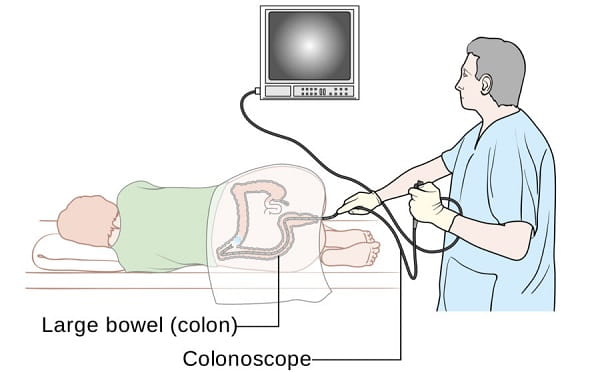Colonoscopy is used to diagnose and treat conditions like colorectal cancer, inflammatory bowel disease, and gastrointestinal bleeding, among others. Usually, it is recommended for individuals over 45.
However, you may be advised to get colonoscopy in Singapore earlier if there's a family history of colorectal cancer or if you live with certain risk factors. You may also be recommended a colonoscopy earlier if you're experiencing symptoms like rectal bleeding, changes in bowel habits, or unexplained weight loss.
But how soon do you get the results after your colonoscopy? And, what happens if they find something during a colonoscopy? Keep reading to find out!

Getting your colonoscopy in Singapore, especially after a recommendation by a medical professional may come with a little anxiety. This explains why so many people search online; do they tell you the results of a colonoscopy right away?
The answer is no. After colonoscopy, you will know the results after about 2 to 3 weeks. If you've waited for 2 to 3 weeks and still haven't received your colonoscopy results, please call the hospital.
If you were referred by your GP to a specialist for the colonoscopy in Singapore, they should also receive a copy of the results. Here's a quick summary of what your colonoscopy results may reveal;
Do keep in mind that the results of your colonoscopy in Singapore are just one part of your overall health picture. Trust your provider to discuss the results with you and recommend any necessary follow-up or treatment based on your circumstances.
Also, don't forget that regular screenings can significantly reduce your risk of developing colorectal cancer. So, be sure to follow your doctor's advice regarding screening frequency and any necessary follow-up care.
Colonoscopies are usually associated with bowel cancer assessments. So, if it is recommended for you, it is just natural to want to ask; is it serious if you need a colonoscopy?
Now, if you need a colonoscopy, it's usually not a cause for serious concern. It's a routine procedure to check for any issues in the colon. The procedure itself is safe and generally well-tolerated. You may be recommended colonoscopy for;
Your doctor may suggest a colonoscopy as a screening tool for colon cancer. This is most likely to happen if you are 45 years or older and at an average risk.
Colonoscopy is typically recommended every 10 years for individuals with no additional risk factors. However, this may change depending on your risk factors.
For example, you may need to begin colonoscopies early or have them more frequently if you have risk factors like a family history of colon cancer. During the procedure, your doctor can detect and remove polyps, which can potentially develop into cancer.
In some cases, you may be recommended a colonoscopy in Singapore purely for treatment purposes. Take for example, if a blockage is identified in your colon.
In this case, your doctor might use the colonoscope to place a stent, which is a small tube that can be inserted into the blocked area to help restore normal flow through the colon. This can provide relief from symptoms such as abdominal pain, bloating, and constipation that may be caused by the blockage. Also, a colonoscopy can be used to locate and remove an object that is accidentally swallowed and becomes lodged in the colon.
You may also be recommended a colonoscopy in Singapore if you are experiencing abdominal pain, rectal bleeding, chronic diarrhea, or other gastrointestinal symptoms. Since it directly visualizes the lining of the colon, your doctor can identify any abnormalities that may be causing your symptoms.
These could include inflammation, ulcers, or tumors. A colonoscopy is particularly useful for investigating symptoms that are not explained by other diagnostic tests. It allows for a comprehensive examination of the entire colon, which can help your doctor make an accurate diagnosis and develop an appropriate treatment plan.
Having a history of polyps in your colon may warrant regular follow-up colonoscopies. Now, most polyps are usually benign. However, some can develop into cancer over time.
During a follow-up colonoscopy, your doctor will carefully examine the lining of your colon to check for the presence of new polyps. If they detect any polyps they can choose to remove them during the procedure.
Removing polyps can help reduce your risk of developing colon cancer in the future. The frequency of follow-up colonoscopies will depend on several factors, including the number, size, and type of polyps that were previously found. Your doctor will develop a follow-up plan tailored to your individual needs to ensure that any new polyps are detected and removed promptly.
After your colonoscopy in Singapore, you may have to wait for two to three weeks to get the results. If you have any concerns, please reach out to your provider for clarity.
We provide colonoscopies in Singapore among other assessments. We're also happy to address any concerns you may have about colonoscopies or your digestive health in general. Visit us today or drop us a line and our very friendly staff will be happy to guide you in the right direction. Details below;
Alpine Surgical Practice - Colorectal Screening | Colonoscopy | Piles & Haemorrhoids Surgery | Gallstones Removal
MOUNT ELIZABETH (ORCHARD)
3 Mount Elizabeth #14-06
Mount Elizabeth Medical Centre
Singapore 228510
+65 6322 7323
+65 8875 0080
+65 6602 8086
PARKWAY EAST
319 Joo Chiat Place #04-07
Singapore 427989
+65 6589 8160
+65 8875 2149
+65 6871 8870